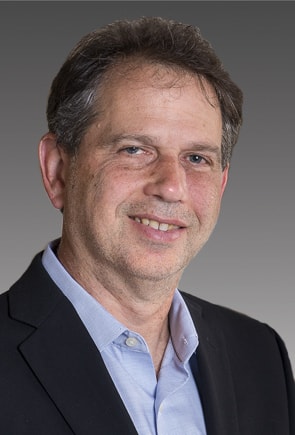Scott Dodelson
Professor of Physics
Astrophysics & Cosmology
Wean Hall 7325
Assistant: KRISTINE PEREZ, 412-268-6681

Education & Professional Experience
Ph.D.: Columbia University (1988)
Professional Societies:
Fellow, American Physical Society
Professor of Physics, Carnegie Mellon University, 2017–
Head, Physics Department, Carnegie Mellon University, 2017–24
Distinguished Scientist, Fermi National Accelerator Laboratory, 2011–17
Scientist II, Fermi National Accelerator Laboratory, 2004–11
Scientist I, Fermi National Accelerator Laboratory, 1999–2004
Associate Scientist, Fermi National Accelerator Laboratory, 1994–99
Head, Theoretical Astrophysics, Fermi National Accelerator Laboratory, 2001–06
Interim Director, Center for Particle Astrophysics, FNAL, 2006–08
Professor, Dept. of Astronomy and Astrophysics, University of Chicago, 2004–17
Associate Professor, Dept. of Astronomy and Astrophysics, University of Chicago, 1998–2004
Visiting Professor, Dept. of Physics and Astronomy, Northwestern University, 2004–05
Post-doctoral Fellow, Fermi National Accelerator Laboratory, 1991–94
Post-doctoral Fellow, Harvard University, 1988–91
Research Interests
I am interested in learning about fundamental physics by analyzing data from cosmic surveys. We have pieced together a remarkably successful cosmological model, but it requires three new pieces of physics: dark matter, dark energy, and inflation. My perception of the goal of cosmology over the coming decade is to extract as much information as possible from increasingly sensitive surveys to either learn about this new physics: What is the dark matter? Is the dark energy vacuum energy? If so, why does it have such a peculiar value? Did inflation really happen? If so, is there any way to relate the fields that drove inflation to those we know about today?
I serve as co-chair of the Science Committee for the Dark Energy Survey, am actively involved in the LSST Dark Energy Science Collaboration, and work with data from the South Pole Telescope. The thread connecting
these observations to underlying theories requires us to understand the data well, phenomenological modeling of the astrophysics and cosmological perturbations, and the possible theoretical alternatives to what is slowly becoming dogma. It is a privilege and pleasure to work with colleagues around the world as we tackle these age-old questions with data sets that are truly extraordinary.
The second edition of Modern Cosmology, now co-authored with Fabian Schmidt, has a running list of errata here: https://gitlab.mpcdf.mpg.de/fa
Please contact Fabian or me with corrections. Thank you!
Selected Publications
A. Amon et al. (DES Collaboration), Dark Energy Survey Year 3 results: Cosmology from cosmic shear and robustness to data calibration, Phys.Rev.D 105, 2,
T. M. C. Abbott et al. (DES Collaboration), Dark Energy Survey Year 3 results: Cosmological constraints from galaxy clustering and weak lensing, Phys.Rev.D 105, 2, 023520 (2022)
J. Myles et al. (DES Collaboration), Dark Energy Survey Year 3 results: redshift calibration of the weak lensing source galaxies, Mon.Not.Roy.Astron.Soc. 505, 3, 4249-4277 (
P. Li, S. Dodelson and R. A. C. Croft, New Probes of Large Scale Structure, e-Print: 2007.00226 (2020)
P. Li, S. Dodelson and R. A. C. Croft, Large Scale Structure Reconstruction with Short-Wavelength Modes, Phys. Rev. D 101, 083510 (2020)
S. Dodelson and F. Schmidt, Modern Cosmology, 2nd edition, Cambridge, UK: Elsevier Press, Print (2020)
S. Dodelson, Gravitational Lensing, Cambridge, UK: Cambridge University Press, Print (2017)
More Publications:
ORCID Researcher ID